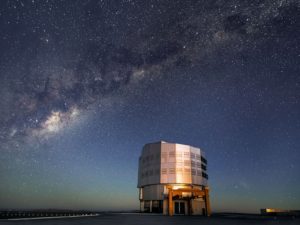There is, among some scientists and philosophers, the idea that any theory  that would allow the time travel would introduce causal issues. These types of temporal paradoxes can be avoided by the Novikov self-consistency principle or by a variation in the interpretation of many worlds with interacting worlds. The world in which we live has, according to David Lewis, a Parmenidean ontology: “a manifold of events in four dimensions,” and the occupants of the world are the 4-dimensional aggregates of the stages – “temporal lines”. The causal loops in backwards time travel involve events that appear to “come from nowhere,” paradoxical “self-existent” objects or information, resulting in a bootstrap paradox. Many believe that causality loops are not impossible or unacceptable, but only inexplicable.
that would allow the time travel would introduce causal issues. These types of temporal paradoxes can be avoided by the Novikov self-consistency principle or by a variation in the interpretation of many worlds with interacting worlds. The world in which we live has, according to David Lewis, a Parmenidean ontology: “a manifold of events in four dimensions,” and the occupants of the world are the 4-dimensional aggregates of the stages – “temporal lines”. The causal loops in backwards time travel involve events that appear to “come from nowhere,” paradoxical “self-existent” objects or information, resulting in a bootstrap paradox. Many believe that causality loops are not impossible or unacceptable, but only inexplicable.
DOI: 10.13140/RG.2.2.28792.70407
Paradoxes of causal loops in spacetime

